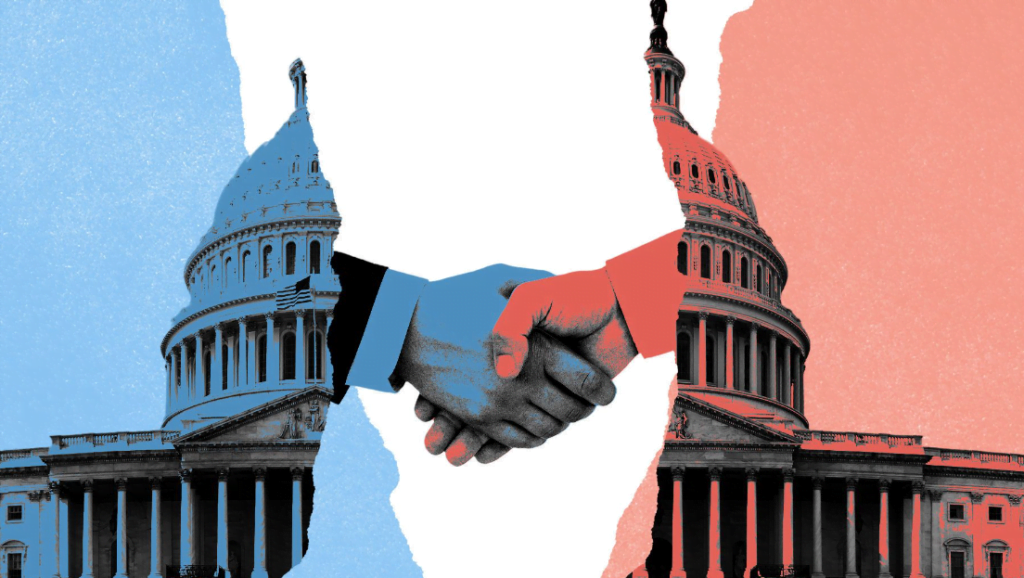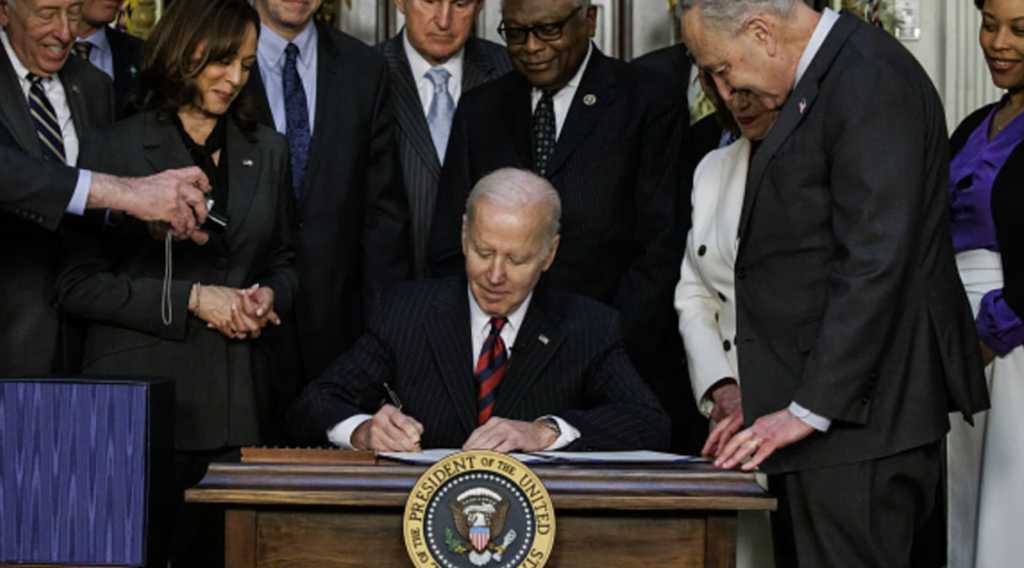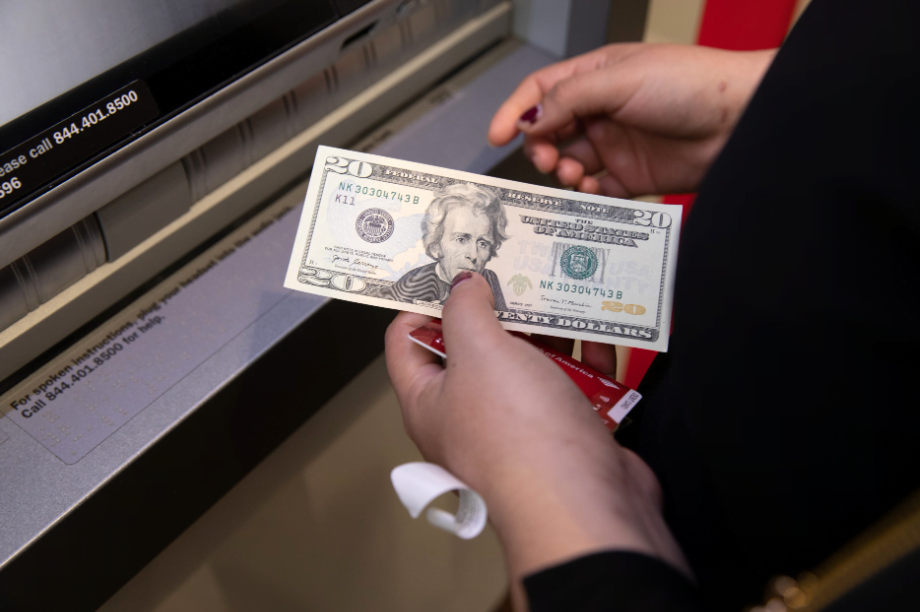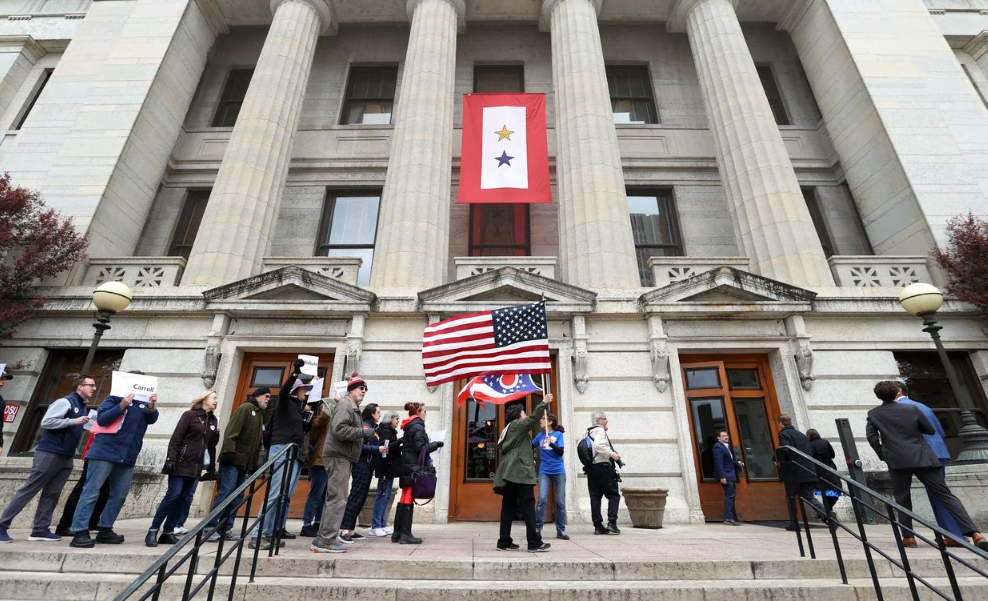free government grant, Obtaining a free government grant is a valuable opportunity that can provide much-needed financial support for a wide range of initiatives, from education and research to community development and innovation. Government grants serve as essential resources for individuals, organizations, and institutions striving to make a positive impact in various fields.
Understanding the process of securing these grants, the eligibility criteria, and the types of grants available is essential for anyone seeking to harness the benefits of this funding. In this article, we will delve into the world of free government grants, exploring what they are, how to qualify for them, the application process, and tips for successful grant acquisition.
What are free government grants?

Free government grants are financial awards provided by government agencies to individuals, organizations, or institutions for various purposes. These grants do not require repayment, making them a valuable resource for funding projects, education, research, community development, and more.
Government grants aim to promote specific goals, such as supporting education, advancing scientific research, improving infrastructure, or addressing social needs. Understanding what free government grants are and how they work is essential for those seeking financial support for specific initiatives.
Free government grants are financial awards that are given by the government to individuals or organizations to help them achieve a specific goal. In the United States, there are many different types of free government grants available, including grants for education, small businesses, and research.
Some of the most common types of free government grants in the United States include:
- Pell Grants: Pell Grants are federal grants that are available to students from low-income families to help them pay for college.
- Federal Supplemental Educational Opportunity Grants (FSEOG): FSEOGs are federal grants that are available to students with financial need who are not eligible for Pell Grants.
- State Grants: State governments also offer grants to help students pay for college. The amount and eligibility requirements for state grants vary from state to state.
- Small Business Grants: The Small Business Administration (SBA) offers grants to help small businesses start up or expand.
- Research Grants: The federal government offers grants to support research in a variety of fields, including science, technology, engineering, and mathematics (STEM).
To be eligible for a free government grant, you will need to meet certain eligibility requirements. These requirements vary from grant to grant, but they may include being a U.S. citizen, having a low income, or being a member of a minority group.
If you are interested in applying for a free government grant, you can find more information on the website of the government agency that is offering the grant. You can also contact your local library or community college for more information on free government grants that are available in your area.
Here are some tips for applying for a free government grant:
- Do your research. There are many different types of free government grants available, so it’s important to do your research and find a grant that’s right for you.
- Meet the eligibility requirements. Each grant has its own eligibility requirements, so be sure to read the fine print and make sure you meet all of the requirements before you apply.
- Gather the required documentation. Each grant has its own required documentation, so be sure to gather all of the required documents before you begin the application process.
- Complete the application form carefully. Be sure to complete the application form carefully and proofread it for any errors.
- Provide a supporting essay or letter. Some grants require you to provide a supporting essay or letter. Be sure to write a well-written essay or letter that explains why you need the grant and how it will help you achieve your goals.
By following these tips, you can increase your chances of being awarded a free government grant.
How to get a free government scholarship

A free government scholarship is a type of grant specifically designed to support individuals pursuing higher education. To secure a free government scholarship, follow these steps:
- Research: Explore government scholarship programs at the federal, state, and local levels. Research the eligibility criteria, application process, and available scholarship opportunities.
- Eligibility: Review the eligibility requirements for each scholarship. Criteria may include academic achievement, financial need, field of study, community involvement, and more.
- Application: Prepare a strong scholarship application, including transcripts, letters of recommendation, essays, and any required documentation. Be sure to meet all application deadlines.
- Submission: Submit your scholarship application as instructed by the government agency or scholarship provider. Keep track of application deadlines and ensure all required materials are included.
- Follow Up: Stay informed about the status of your scholarship application. Some government scholarship programs may require interviews or additional steps in the selection process.
By following these steps, you can increase your chances of obtaining a free government scholarship to support your educational goals.
Here are some tips on how to get a free government scholarship:
- Do your research. There are many different types of government scholarships available, so it’s important to do your research and find a scholarship that’s right for you. You can start by searching online or by contacting your local library or community college.
- Meet the eligibility requirements. Each scholarship has its own eligibility requirements, so be sure to read the fine print and make sure you meet all of the requirements before you apply.
- Gather the required documentation. Each scholarship has its own required documentation, so be sure to gather all of the required documents before you begin the application process. This may include your transcripts, letters of recommendation, and personal statements.
- Complete the application form carefully. Be sure to complete the application form carefully and proofread it for any errors.
- Submit your application on time. Most scholarships have deadlines, so be sure to submit your application on time.
- Follow up with the scholarship committee. After you submit your application, be sure to follow up with the scholarship committee to let them know you’re still interested in the scholarship.
Types of free government grants

There are various types of free government grants available, each catering to specific needs and objectives. Some common types of government grants include:
- Educational Grants: These grants support individuals pursuing education at various levels, including scholarships for higher education, vocational training, and adult education.
- Research Grants: Government agencies offer research grants to support scientific research, technological advancements, and innovation in various fields.
- Community Development Grants: These grants focus on improving infrastructure, healthcare, housing, and community services in underserved areas.
- Small Business Grants: Government grants help small businesses grow, create jobs, and contribute to the local economy.
- Nonprofit Organization Grants: Government grants support nonprofit organizations engaged in social services, humanitarian work, and community development.
Understanding the different types of free government grants allows individuals and organizations to identify opportunities that align with their objectives.
There are many different types of free government grants available, but some of the most common include:
- Education grants: These grants are designed to help students pay for college or other educational expenses. Some popular education grants include the Pell Grant, the Federal Supplemental Educational Opportunity Grant (FSEOG), and the Teacher Education Assistance for College and Higher Education (TEACH) Grant.
- Small business grants: These grants are designed to help small businesses start up or expand. Some popular small business grants include the Small Business Administration (SBA) Microloan Program and the Economic Development Administration (EDA) Public Works and Economic Development (PWEDA) Grant.
- Research grants: These grants are designed to support research in a variety of fields, including science, technology, engineering, and mathematics (STEM). Some popular research grants include the National Institutes of Health (NIH) Grant and the National Science Foundation (NSF) Grant.
- Community grants: These grants are designed to support community organizations and projects. Some popular community grants include the Corporation for National and Community Service (CNCS) AmeriCorps Grant and the Department of Housing and Urban Development (HUD) Community Development Block Grant (CDBG).
- Environmental grants: These grants are designed to support environmental protection and conservation efforts. Some popular environmental grants include the Environmental Protection Agency (EPA) Environmental Justice Grant and the Department of the Interior (DOI) Land and Water Conservation Fund (LWCF).
To be eligible for a free government grant, you will need to meet certain eligibility requirements. These requirements vary from grant to grant, but they may include being a U.S. citizen, having a low income, or being a member of a minority group.
If you are interested in applying for a free government grant, you can find more information on the website of the government agency that is offering the grant. You can also contact your local library or community college for more information on free government grants that are available in your area.
Here are some tips for finding free government grants:
- Do your research. There are many different types of free government grants available, so it’s important to do your research and find a grant that’s right for you. You can start by searching online or by contacting your local library or community college.
- Use government websites. The federal government has a number of websites that list free government grants, including Grants.gov and USA.gov.
- Talk to your school or college. Your school or college may have a financial aid office that can help you find free government grants.
- Contact your local government. Your local government may offer free government grants to residents.
- Get involved in your community. Volunteering or participating in extracurricular activities can help you network with people who may know about free government grants.
Conditions for obtaining free government grants
While free government grants offer valuable financial support, there are conditions and requirements that applicants must meet to be eligible for these grants. Common conditions may include:
- Eligibility Criteria: Applicants must meet specific eligibility criteria established by the government agency offering the grant. This may include factors such as age, income level, educational background, field of study, or geographic location.
- Project Alignment: Government grants are often awarded for projects that align with the goals and priorities of the grant program. Applicants should demonstrate how their project contributes to the program’s objectives.
- Compliance: Grant recipients must adhere to the terms and conditions outlined by the government agency. This may include reporting requirements, project milestones, and accountability for grant funds.
- Public Benefit: Many government grants aim to provide a public benefit, whether through education, community development, research, or other initiatives. Applicants should emphasize how their project benefits the public or a specific target audience.
- Application Process: Applicants must follow the specified application process, including submitting all required documentation, meeting deadlines, and providing accurate information.
Understanding and meeting these conditions is essential for successfully obtaining free government grants for various purposes.
The conditions for obtaining free government grants vary depending on the specific grant, but some common conditions include:
- Citizenship: You must be a U.S. citizen or a permanent resident to be eligible for most government grants.
- Income: You must have a low income to be eligible for some government grants.
- Need: You must demonstrate financial need to be eligible for some government grants.
- Eligibility: You must meet the specific eligibility requirements of the grant, which may include things like being a student, a small business owner, or a member of a minority group.
- Application: You must submit a complete and accurate application to be considered for a government grant.
- Selection: The government agency that is offering the grant will select the recipients based on a number of factors, including the applicant’s financial need, the quality of the application, and the relevance of the project to the grant’s goals.
It is important to note that not all government grants are free. Some government grants require the recipient to repay the money, either in full or in part. It is important to read the fine print of any government grant before you apply to make sure you understand the terms and conditions.
How to apply for a free government scholarship

Here are the steps on how to apply for a free government scholarship:
- Do your research. There are many different government scholarships available, so it’s important to do your research and find a scholarship that’s right for you. You can start by searching online or by contacting your local library or community college.
- Meet the eligibility requirements. Each scholarship has its own eligibility requirements, so be sure to read the fine print and make sure you meet all of the requirements before you apply.
- Gather the required documentation. Each scholarship has its own required documentation, so be sure to gather all of the required documents before you begin the application process. This may include your transcripts, letters of recommendation, and personal statements.
- Complete the application form carefully. Be sure to complete the application form carefully and proofread it for any errors.
- Submit your application on time. Most scholarships have deadlines, so be sure to submit your application on time.
- Follow up with the scholarship committee. After you submit your application, be sure to follow up with the scholarship committee to let them know you’re still interested in the scholarship.
Here are some of the most common documents required for a government scholarship application:
- Transcripts: Your official transcripts from all of the colleges or universities you have attended.
- Letters of recommendation: Two or three letters of recommendation from teachers, professors, or other professionals who can attest to your academic achievements and character.
- Personal statement: A personal statement that describes your academic goals, your reasons for applying for the scholarship, and your personal qualities.
- Financial need statement: A financial need statement that documents your financial situation and explains why you need the scholarship.
The papers required to obtain a free government grant

Obtaining a free government grant often requires specific documentation to support your application. While the required papers may vary based on the type of grant and the government agency, common documents may include:
- Proof of Eligibility: Documents demonstrating that you meet the eligibility criteria for the grant, such as income verification, academic records, or certification of participation in a specific program.
- Project Proposal: A detailed project proposal outlining the purpose, goals, expected outcomes, and methodology of the project you intend to fund with the grant.
- Budget: A clear and well-structured budget outlining how you plan to use the grant funds, including expenses, resources, and estimated costs.
- Timeline: A timeline or project schedule indicating milestones, deadlines, and the duration of the project.
- Letters of Recommendation: Letters from individuals who can vouch for your qualifications, skills, and the potential impact of your project.
- Organization Information: If applying on behalf of an organization, you may need to provide details about the organization, its mission, track record, and governance.
- Legal Documentation: Depending on the grant, you may need to provide legal documentation, such as licenses, permits, or certifications relevant to your project.
It’s essential to carefully review the grant application guidelines provided by the government agency to ensure you include all required documents.
The papers required to obtain a free government grant vary depending on the specific grant, but some common documents include:
- Application form: You will need to complete an application form for the grant. This form will ask for information about your personal and financial situation, as well as your project or goals.
- Proof of citizenship: You will need to provide proof of citizenship or residency in the United States. This can be done with a passport, birth certificate, or other government-issued identification.
- Proof of income: You will need to provide proof of your income. This can be done with tax returns, pay stubs, or other financial documents.
- Proof of need: If the grant is need-based, you will need to provide proof of your financial need. This can be done with a letter from a financial aid counselor, a copy of your FAFSA form, or other documentation.
- Letters of recommendation: You may be asked to provide letters of recommendation from teachers, professors, or other professionals who can attest to your character and qualifications.
- Personal statement: You may be asked to write a personal statement about your project or goals. This statement should explain why you are applying for the grant and how the funds will be used.
It is important to note that not all government grants require the same paperwork. Be sure to read the grant application carefully to see what documents are required.
Deadline for submitting applications for free government grants
The deadline for submitting applications for free government grants is a crucial consideration. Missing the deadline can result in your application not being considered for funding. To ensure you meet the application deadline:
- Start Early: Begin the application process well in advance of the deadline. This gives you sufficient time to gather documents, complete the application, and review your submission.
- Mark the Date: Highlight the application deadline on your calendar and set reminders to ensure you don’t forget to submit on time.
- Submit Before the Deadline: Aim to submit your application a few days before the actual deadline. This provides a buffer in case of any unforeseen issues, such as technical glitches or delays.
- Double-Check: Confirm the exact submission deadline based on the time zone specified by the government agency. Some grants may have specific time requirements.
By prioritizing the application deadline, you maximize your chances of having your grant application reviewed by the government agency.
The deadline for submitting applications for free government grants varies depending on the specific grant. Some grants have rolling deadlines, which means that you can apply at any time. Other grants have fixed deadlines, which means that you must submit your application by a certain date. It is important to read the grant application carefully to see what the deadline is.
Here are some tips for finding the deadline for a free government grant:
- Check the grant website: The grant website will usually have the deadline listed on the home page or in the “About” section.
- Contact the grantor: If you can’t find the deadline on the grant website, you can contact the grantor directly to inquire about the deadline.
- Use a grant database: There are a number of grant databases available online that list the deadlines for free government grants.
It is important to note that the deadline for submitting applications for free government grants can change at any time. It is always best to check the grant website or contact the grantor directly to confirm the deadline before submitting your application.
How to find out if you qualify for a free government scholarship

Determining your eligibility for a free government scholarship involves reviewing the specific criteria set by the scholarship program. To find out if you qualify:
- Review Eligibility Requirements: Carefully read the eligibility criteria provided by the government agency offering the scholarship. This information is usually available on the program’s official website.
- Assess Your Qualifications: Compare your qualifications, academic achievements, financial need, and any other relevant factors to the specified eligibility criteria.
- Contact the Scholarship Provider: If you have questions about your eligibility, consider reaching out to the scholarship provider or the designated contact person listed on the program’s website. They can provide clarification on specific criteria.
- Check Application Guidelines: Review the application guidelines, instructions, and any additional requirements. Ensure that you meet the criteria before investing time in preparing your application.
- Seek Advice: Consult with academic advisors, mentors, or individuals familiar with the scholarship program. They may provide valuable insights on whether you’re a suitable candidate for the scholarship.
By carefully reviewing the eligibility criteria and seeking relevant information, you can determine if you qualify for a free government scholarship.
There are a few things you can do to find out if you qualify for a free government scholarship:
- Read the eligibility requirements: Each scholarship has its own eligibility requirements, so it’s important to read the fine print and make sure you meet all of the requirements before you apply.
- Talk to your school or college financial aid office: Your school or college financial aid office may be able to help you find scholarships that you qualify for.
- Use a scholarship database: There are a number of scholarship databases available online that list scholarships and their eligibility requirements.
- Contact the grantor: If you find a scholarship that you’re interested in, you can contact the grantor directly to inquire about the eligibility requirements.
Here are some of the most common eligibility requirements for free government scholarships:
- Citizenship: You must be a U.S. citizen or a permanent resident to be eligible for most government scholarships.
- Income: You must have a low income to be eligible for some government scholarships.
- Need: You must demonstrate financial need to be eligible for some government scholarships.
- Academic achievement: You must have a high GPA and SAT/ACT scores to be eligible for some government scholarships.
- Extracurricular activities: You must be involved in extracurricular activities to be eligible for some government scholarships.
- Personal qualities: You must have good character and leadership skills to be eligible for some government scholarships.
It is important to note that not all government scholarships have the same eligibility requirements. Be sure to read the scholarship application carefully to see what requirements are specific to the scholarship you are applying for.
Tips for getting a free government grant

Here are some tips for getting a free government grant:
- Start early. The sooner you start applying for grants, the better. This will give you more time to research grants, meet the eligibility requirements, and gather the required documentation.
- Do your research. There are many different types of government grants available, so it’s important to do your research and find a grant that’s right for you. You can start by searching online or by contacting your local library or community college.
- Meet the eligibility requirements. Each grant has its own eligibility requirements, so be sure to read the fine print and make sure you meet all of the requirements before you apply.
- Gather the required documentation. Each grant has its own required documentation, so be sure to gather all of the required documents before you begin the application process. This may include your transcripts, letters of recommendation, and personal statements.
- Complete the application form carefully. Be sure to complete the application form carefully and proofread it for any errors.
- Submit your application on time. Most grants have deadlines, so be sure to submit your application on time.
- Follow up. After you submit your application, be sure to follow up with the grantor to let them know you’re still interested in the grant.
- Be persistent. Don’t give up if you don’t get the first grant you apply for. Keep applying for grants until you’re successful.
Here are some additional tips that may help you increase your chances of getting a free government grant:
- Network with people in your field. Talk to your professors, advisors, and other professionals in your field. They may be able to connect you with grants that you wouldn’t otherwise know about.
- Get involved in your community. Volunteering or participating in extracurricular activities can show grant committees that you’re passionate about your community and that you’re a well-rounded individual.
- Write a strong personal statement. Your personal statement is your chance to tell grant committees why you deserve the grant. Be sure to write a well-written and persuasive statement that highlights your academic achievements, extracurricular activities, and personal qualities.
- Be prepared to answer questions about your project or goals. The grant committee may ask you questions about your project or goals. Be prepared to answer these questions in a clear and concise way.
- Be confident. Believe in yourself and your ability to succeed. If you believe in yourself, the grant committee will be more likely to believe in you too.
Securing a free government grant involves strategic planning, preparation, and attention to detail. Consider the following tips to increase your chances of obtaining a government grant:
- Research Thoroughly: Research the available government grant programs to identify those aligned with your goals and needs. Understand the purpose, priorities, and focus areas of each grant program.
- Meet Eligibility Requirements: Ensure that you meet the eligibility criteria for the grant you’re applying for. Eligibility factors may include age, income, academic background, field of study, or specific qualifications.
- Prepare a Strong Proposal: Craft a compelling and well-structured proposal that clearly communicates the purpose of the grant, expected outcomes, and how the project aligns with the goals of the grant program.
- Follow Guidelines: Read and follow the guidelines provided by the government agency offering the grant. Adhere to the application format, document requirements, and submission instructions.
- Highlight Impact: Emphasize the potential impact and benefits of your project. Explain how the grant funds will be utilized to achieve meaningful results.
- Seek Professional Advice: Consider seeking advice from professionals, mentors, or experts in the field to review your proposal and provide valuable feedback.
- Proofread: Thoroughly proofread your grant application to ensure accuracy, clarity, and professionalism. A well-presented proposal demonstrates your commitment and attention to detail.
- Submit Early: Aim to submit your grant application before the deadline. Early submission allows you to address any unexpected issues that may arise.
- Follow Up: After submitting your application, keep track of the application status. Some government grant programs may provide updates or require additional information during the review process.
- Stay Informed: Stay informed about the latest government grant opportunities and deadlines. Subscribe to government newsletters, attend informational webinars, and engage with relevant government agencies.
By following these tips, you enhance your chances of successfully obtaining a free government grant to support your project, education, research, or community initiatives.
Conclusion: In the pursuit of funding for education, research, community projects, and other endeavors, free government grants stand as a beacon of support and opportunity. By understanding the various types of grants, adhering to eligibility criteria, preparing strong applications, and leveraging valuable advice, individuals and organizations can increase their chances of receiving this crucial financial aid.
The world of free government grants is vast, and for those who seize this opportunity, the impact can be transformative. As you navigate the grant application process, remember to remain informed, proactive, and committed to the goals you seek to achieve. Through dedication and persistence, you can unlock the potential of free government grants to bring your vision to life and contribute to positive change.

